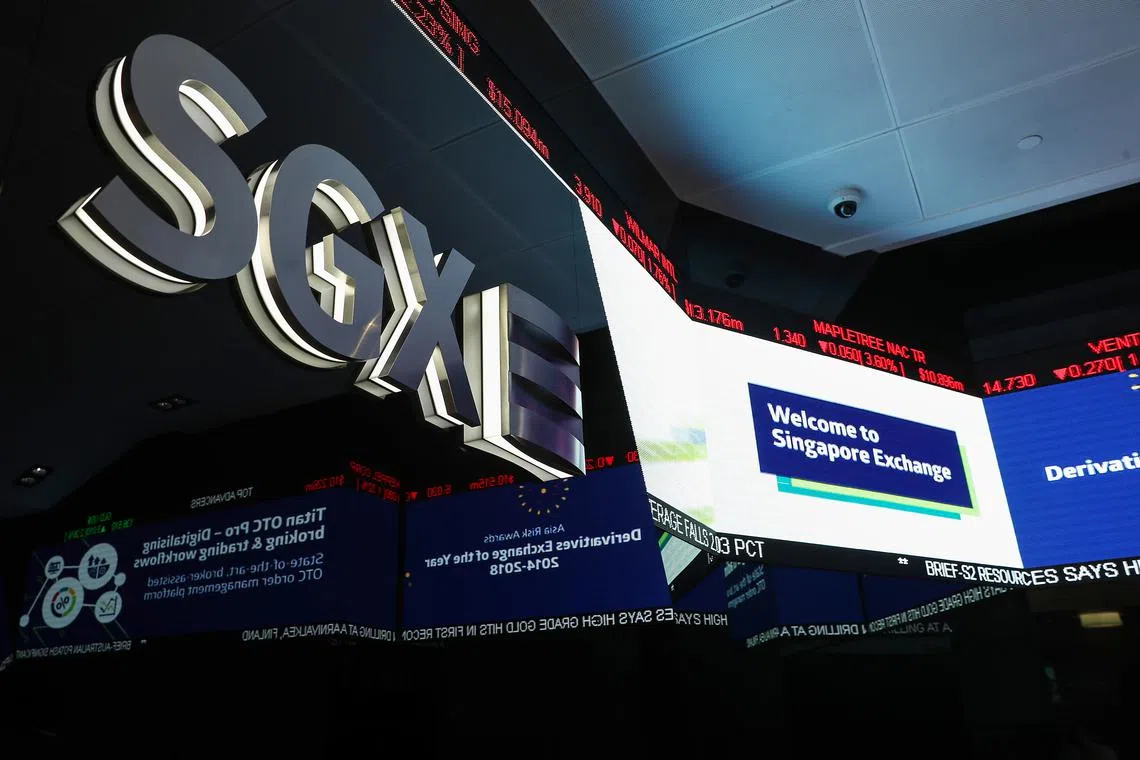Commentary
Much room for improvement for boards in looking after shareholder interests
Sign up now: Get ST's newsletters delivered to your inbox

Shareholders have a fundamental right to expect their boards to be made up of competent individuals.
PHOTO: BT FILE
David Gerald
Follow topic:
SINGAPORE - Shareholders have a basic right to expect that boards will look after their interests, but this is not always the case.
Those interested in improving the level of corporate governance in the local stock market would have been pleased by the latest Singapore Governance and Transparency Index (SGTI) results revealed in August, which showed the 474 listed companies in the general category increasing their scores to 74.8 points in 2023, up from 70.6 in 2022.
While it is encouraging to see these improvements, the mean score for board responsibilities was only 64 per cent.
We have seen in the past few months examples of boards not properly discharging their duties.
In the case of semiconductor firm Asti, for example, a group of shareholders, clearly unhappy with the way the company had been run over the past few years, in April requisitioned an extraordinary general meeting (EGM)
This was done under Section 177 of the Companies Act, where a group of shareholders who own more than 10 per cent of a company are entitled to call for a meeting and put resolutions to a vote.
In a March 24 letter to the company, the shareholders cited the deteriorating value of their shares as the main reason for calling for the meeting, and stated that they had “exhausted any hope, faith or confidence whatsoever in the current team”.
They added that it was “definitely time for an overhaul and change at the company”.
Although the EGM resolutions were passed by shareholders who attended the meeting on Aug 22, the incumbents have not stepped down because they dispute the legitimacy of the EGM and have taken the matter to court.
In the meantime, an annual general meeting (AGM) was held by the incumbent directors
This is because if the Aug 22 EGM is for any reason eventually ruled to have been validly convened, then the existing directors should have been removed and could not have legitimately hosted the Aug 31 AGM.
If this is not confusing enough for shareholders, there is also the issue of an exit offer, which the company was instructed to present to shareholders in June 2022 by the Singapore Exchange (SGX). But, notwithstanding the fact that there have been some updates in the interim, this has yet to be tabled.
Shareholders are therefore in a quandary.
One has to ask: How did things deteriorate so badly? Shareholders are entitled to expect their boards to be properly run at the very least, but the shambolic state of affairs at Asti – one news report correctly described it as “a corporate governance disaster” – suggests that this has not been the case.
Consider also the circumstances of seafood company No Signboard, which has on its board a non-executive and non-independent director connected to ongoing investigations into an alleged billion-dollar money laundering ring
Although the company was quick to issue a statement in August that the individual was not involved in running No Signboard, did not attend or take part in board meetings and did not receive any remuneration, this leads quite logically to the question: What then was he doing as a director?
Shareholders have a fundamental right to expect their boards to be made up of competent individuals who, at the very least, show up for board meetings and have some say in how the business is being managed. If not, why waste a spot on the board which could have been occupied by someone more qualified?
As it turns out, the director’s appointment was purely because he has a 20 per cent stake, as if this automatically equates to competence to run the company. Furthermore, if he did possess relevant industry knowledge and expertise, then why did he not attend any board meetings?
There appears to have been a total disregard for the requirements for the appointment of directors under the Companies Act.
Then there is the case of beauty products distributor Best World, whose remuneration committee approved salaries totalling about $32 million for three executive directors in 2022 alone, but has not paid shareholders any dividends since 2019.
And of course, there is Hyflux, a once high-flying water treatment company that has collapsed
Needless to say, the expectations of the entire shareholder base have been dashed.
Many more instances can be found, but the point is that it appears there is plenty of room for improvement among many companies in terms of the discharge of board responsibilities, in particular, looking after the interests of shareholders.
At the Governance and Transparency Forum, which was held to announce the latest SGTI scores, chief executive of SGX Regulation Tan Boon Gin said, quite rightly, that nominating committees should evaluate the performance of their directors every year to ensure they still bring benefits to the boards they sit on.
Minorities of many companies might quite rightly question whether this is actually being done. Perhaps it is time to follow the practice in New Zealand, where directors seeking appointment must justify their suitability to shareholders before assuming their positions.
The writer is president of the Securities Investors Association (Singapore).

